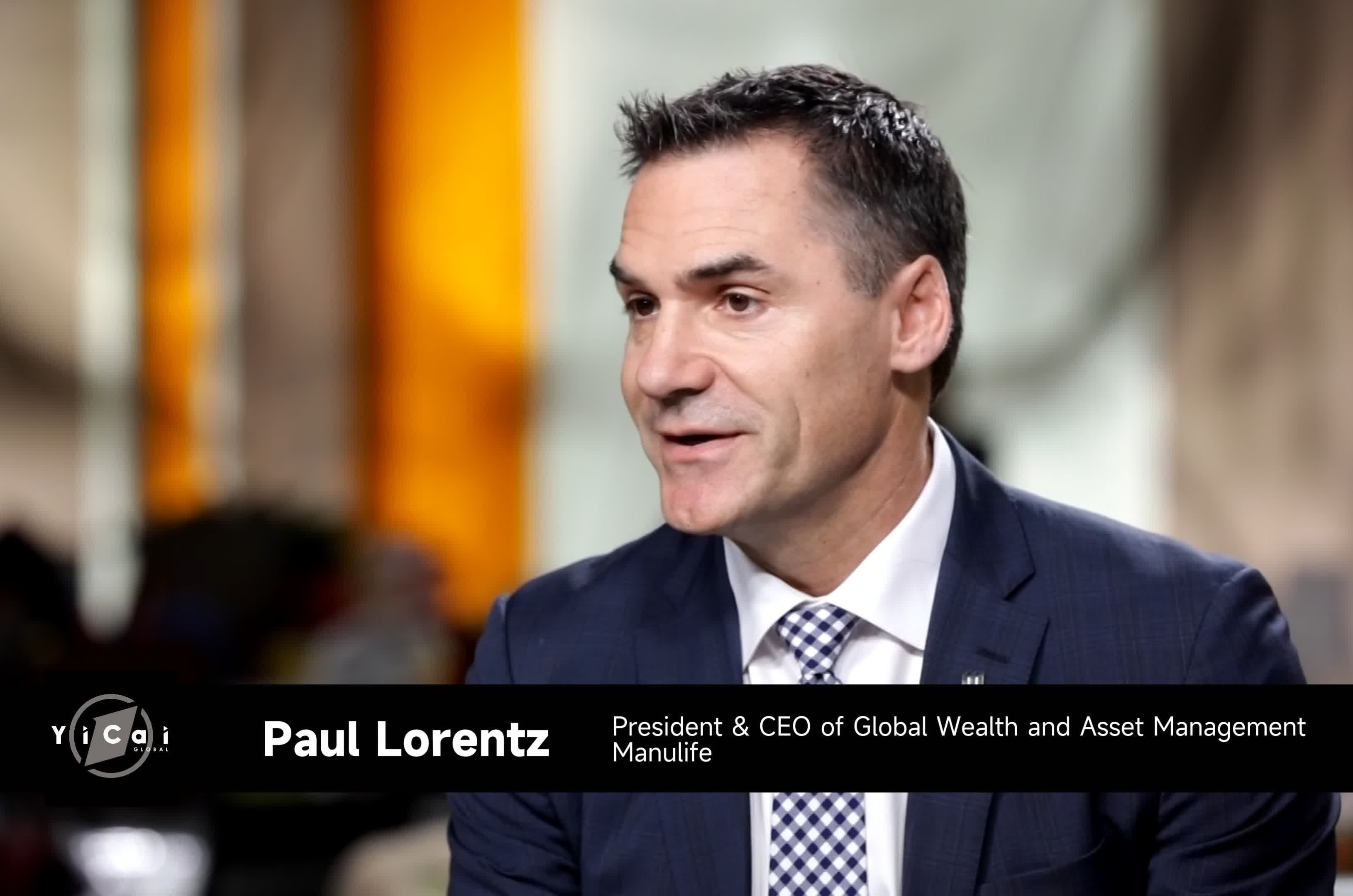
(Yicai) April 25 -- The mutual fund market accounts for 16 percent of China's gross domestic product, compared with 120 percent in the United States, meaning that there is still lots of potential in the Chinese mutual fund market, according to the president and chief executive officer of Manulife Investment Management.
Manulife Investment Management is quite bullish on China for a number of reasons, such as the stabilization of manufacturing and the country's market size and potential, especially when compared with other global markets, Paul Lorentz told Yicai in a recent interview.
Manulife Investment Management is the global wealth and asset management arm of Canada's Manulife Financial. It became the first wholly foreign owned fund manager in China to receive approval in November 2022.
Below are excerpts from the interview:
Yicai: What's the purpose of your trip to China this time? And what are the main takeaways?
Paul Lorentz: We decided to come here because China is a very important market for us. China is a strategic opportunity for us. We really take a long-term approach to the market here. For us in financial services, we just look at the size of the market and the opportunity, and we think it's tremendous, particularly compared to other markets around the world.
But if you look at the mutual fund market here in China, it's about 16 percent of China's GDP. In the United States, it's 120 percent of GDP. So, while the market's already big here and growing, we think the runway for that is just going to continue.
We have a lot of capabilities and expertise from around the globe we think could really benefit local investors.
Yicai: How can Manulife help with demographic changes posing long-term challenges to the Chinese economy?
Lorentz: The biggest challenge is probably related to the retirement funding gap. There are over 290 million individuals in China aged 60 plus. Couple that with the fact that people are living longer, and that means individuals are going to leave more money when they retire. And for us, what we're really good at globally is building income solutions, such as including fixed income, asset allocation, and building portfolios. But we're also quite big in retirement globally. We think there's a lot we can really do to help bring that local expertise to the local team and investors.
Yicai: What are the business opportunities in China?
Lorentz: There are a number of business opportunities, one of which is to get individuals to think about investing for the long term. And part of that is bringing some of the unique solutions that we built, such as asset allocation. The pension reform that was announced here is a step in the right direction to creating Pillar 3, and we already have a number of products that have been pre-approved for that.
Yicai: What is your take on China's macroeconomic landscape? China's GDP grew 5.3 percent in the first quarter, which is quite strong.
Lorentz: We're quite bullish on China as an organization for a number of reasons. One is that we do think manufacturing is stabilized, which is positive for the economy. We also see the government wanting to make this transition from producing lower-end goods to higher-end goods, whether they are electric vehicles or data centers. We think that's also going to be positive.
And the other thing for someone like us as an active manager is individual security selection, which we think it is really important, particularly in China. We also have some great investment teams here in China that have a strong track record of doing that, which gives us a lot of confidence that we are adding value to investors who want to be with us.
Yicai: China is trying to move higher in the value chain. Do you think creating a new quality productive force is the right thing to do?
Lorentz: We believe that's a real positive, as higher-end products are going to drive more volume and income into the economy. They are also going to be the ones to be in demand in the future, so positioning the economy for where the market is going is really, really important. And there is an added benefit to this transition because higher-end products also support a lower carbon and more efficient use of the economy.
Editor: Futura Costaglione, Zhang Yangyang